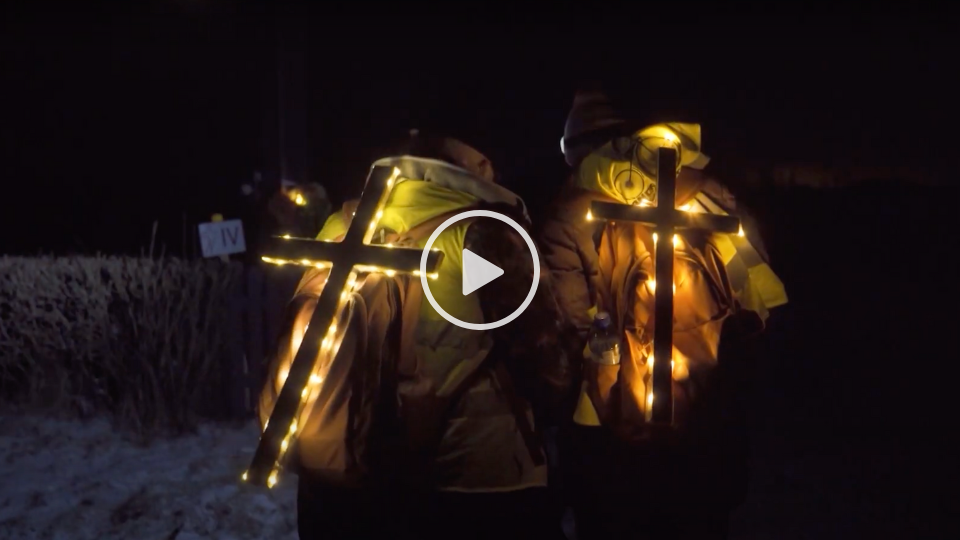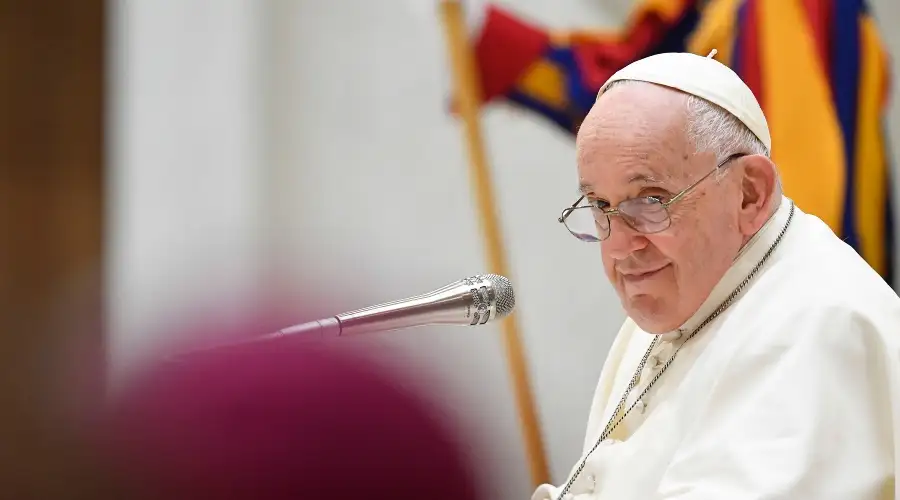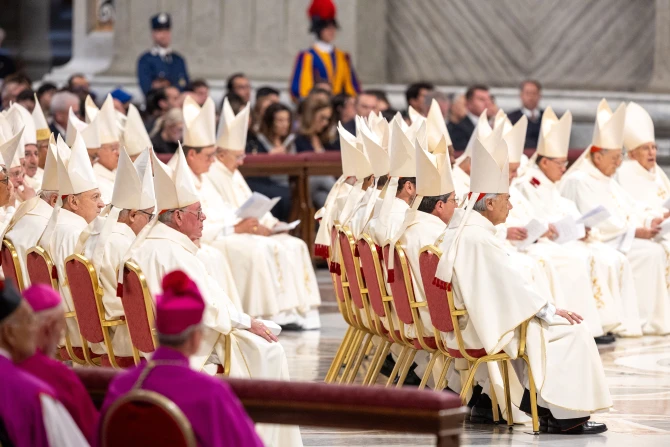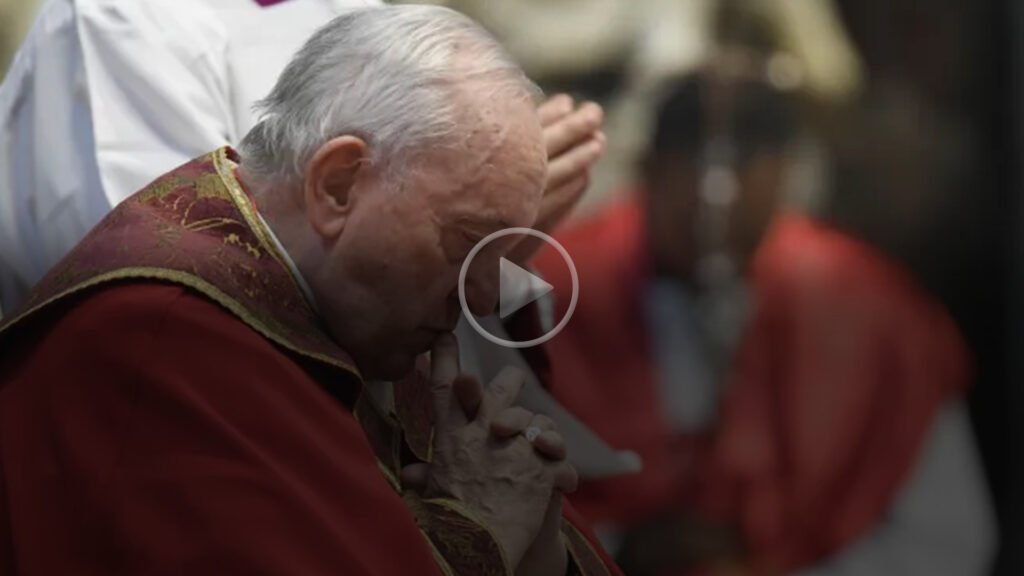Pope Francis has backed a project aimed at enhancing interdisciplinary research at Catholic universities in the sphere of family, marriage, and childbearing.
“We cannot be indifferent to the future of the family as a community of life and love, a unique and indissoluble covenant between a man and a woman, a place where generations meet, a source of hope for society,” the pope said in a message of support released Tuesday.
The project, called the Family Global Compact, was presented May 30 by members of the Pontifical Academy of Social Sciences (PASS) and the Dicastery for Laity, Family, and Life.
In a written message read at the presentation, Cardinal Kevin Farrell, prefect of the family dicastery, said: “The Family Global Compact entrusts Catholic universities with the task of developing more in-depth theological, philosophical, legal, sociological, and economic analyses of marriage and the family to sustain it and place it at the heart of systems of thought and contemporary action.”
The compact includes a 50-page document outlining specific challenges faced by families today, followed by suggested solutions and actions to take. Each challenge also includes guidelines for university research on that topic.
The document notes the challenges caused by low birth rates in many areas of the world and how the widespread practice and legalization of contraception, abortion, and sterilization “have transformed the meaning of procreation: from a natural inclination and gift of God to a project and result of a procreative will that tends to dominate life.”
The Vatican document encourages working to create “favorable conditions for getting married and having children at a young age” and to improve access to Church-approved forms of medical care, such as Naprotechnology, for those struggling with infertility.
The document also discusses the promotion of marriage among young adults, childbearing and adoption, intergenerational dependence, domestic violence, education to faith and the common good, employment, and poverty, among other subjects.
“This project,” the document says, “also challenges all the social actors to whom the Family Global Compact will be able to offer arguments and reflections based on rigorous empirical evidence, investigated and interpreted within an explicit anthropological perspective, relational and personalistic in nature, firmly inscribed in the social doctrine of the Church.”
The Vatican representatives emphasized May 30 that the project is based on the concrete realities of families today.
The president of PASS, Sister Helen Alford, OP, said: “We see that, despite the sense of a crisis in the family, or even of the ‘death’ of the family, it remains a central goal and value in people’s lives.”
“We cannot resign ourselves,” Pope Francis said in his message, “to the decline of the family in the name of uncertainty, individualism, and consumerism, which envision a future of individuals who think only of themselves.”
“The family, it should be recalled, has a positive effect on everyone, since it is a generator of common good,” he continued. “Healthy family relationships represent a unique source of enrichment, not only for spouses and children but for the entire ecclesial and civil community.”
Gabriella Gambino, an undersecretary of the family and life dicastery, pointed to four steps, or goals, of the Family Global Compact, as explained by Pope Francis.
The first is to initiate “a process of dialogue and greater collaboration among university study and research centers dealing with family issues, in order to make their activities more productive, particularly by creating or reviving networks of university institutes inspired by the social doctrine of the Church,” the pope said.
The second and third goals, he added, are to create “greater synergy of content and goals between Christian communities and Catholic universities” and to promote “the culture of family and life in society, so that helpful public policy resolutions and objectives can emerge.”
And finally, Francis said, the compact hopes to harmonize and advance proposals resulting from the research “so that service to the family can be enhanced and sustained in spiritual, pastoral, cultural, legal, political, economic, and social terms.”
Pierpaolo Donati, a sociologist and member of PASS, said in the past “once upon a time if you will,” young people were educated in a healthy family life by the family, but now, this has largely been lost.
“The core of the problem is a relationship culture that is lacking,” he said.
“Studies have revealed a crisis in family relationships,” Pope Francis said, “fueled by both contingent and structural problems, which, in the absence of adequate means of support from society, make it more difficult to create a serene family life.”
“This is one reason why many young people are choosing unstable and informal types of emotional relationships over marriage,” he explained. “At the same time, surveys make it clear that the family continues to be the primary source of social life and point to the existence of good practices that deserve to be shared and promoted globally.”
“Families themselves can and should be witnesses and leaders in this process.”
This article was originally published on Catholic News Agency.






